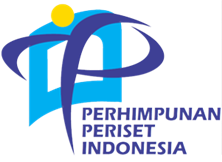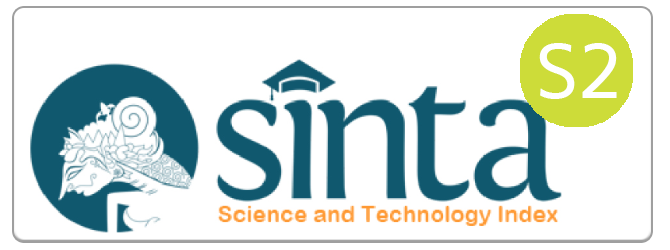PENGARUH SOFT SKILL PENDIDIK DAN EFIKASI DIRI TERHADAP STRES AKADEMIK SISWA MADRASAH ALIYAH NEGERI KABUPATEN SEMARANG
Abstract
Keywords
Full Text:
PDF (Bahasa Indonesia)References
Bandura, A. 2001. Social Cognitive Theory : An Agentic Perspective. Annual Review of Psychology, 52, 1-26. Tersedia di http://www.annualreviews.org/doi / Diunduh pada tanggal 13 Juli 2018
Baron, R. A. & Byrne, D. 2004. Psikologi Sosial Jilid 1. Jakarta: Erlangga.
Cherian, Jacob dan Jolly Jacob. 2013. Impact of Self Efficacy on Motivation and Performance off Employees. International Journal of Business and Management. Vol. 8, No. 14, p 80-88. Diunduh sep 2018.
Elfindri, et al. 2010. Soft Skills untuk Pendidik. PT.: Baduose Media, Bandung
Feist, Jess & Feist, Gregory J. 2010. Teori Kepribadian. Terjemahan. Theories of Personality. Seventh editon. Penerjemah: Smita Prathita Sjahputri. Jakarta: Salemba Humanika
Ghufron, M. Nur dan Rini Risnawita S. 2010. Teori-Teori Psikologi. Yogyakarta: Ar-Ruzz Media.
Govaerts, S. & Gregoire, J. 2004. Stressful academic situations: study on appraisal variables in adolescence. Revue Europenne De Psychologie Appliquee. 54, 261-271. DOI: 10.1016/j.erap.2004.05.001. Diunduh pada tanggal 18 Juni 2018 dari http://www.researchgate.net
Hasfrentia, Yosephine Darista. 2016. Hubungan antara self-efficacy dan stress akademik pada pelajar SMAN 1 Tuntang Kabupateng Semarang. Tersedia di laman
repository.uksw.edu/…/2/T1_802012096_Full text.pdf
Khan, Musharat J; Seema Altaf and Hajsa Kausar. 2013. Effect of Perceived Academic Stress on Students’ Performance. FWU Journal of Social Sciences, Winter 2013, Vol. 7, No. 2, p,146-151. Diunduh Sep 2018
Luthans, Fred. 2006. Organizational Behavior. Seventh Edition. Singapore: Mc Graw- Hill, Inc
Muqowim. 2012. Pengembangan Soft Skills Guru. Yogyakarta: Pedagogia.
Nawangsar, N.A.F. 2001. Pengaruh Self-efficacy dan Expectancy-value terhadap kecemasan menghadapi pelajaran matematika. Jurnal INSAN Media Psikologi. Vo. 3 Nomor 2 hal. 75-88
Noviyanti, Dian Rizki. 2016. Pengaruh self-efficacy terhadap kinerja dengan motivasi sebagai variabel intervening. Jurnal Ilmu MAnajemen Vol. 4 Nomor 3 FE Unesa Surabaya.
Ormrod, J. E. 2009. Psikologi Pendidikan. Jakarta: Erlangga.
Santrock, J.W. 2007. Adolescence, Perkembangan Remaja. Penerjemah: Shinto B. Adelar & Sherly Saragih. Jakarta: Erlangga
Smeth, B. 1994. Psikologi Kesehatan. Jakarta: PT Gramedia Widiasarana Indonesia
Sugiyono. 2010. Metode Penelitian Pendidikan Pendekatan Kuantitatif, Kualitatif dan R&D. Bandung: CV. Alfabeta
Wirawan. 2012. Menghadapi Stres dan Depresi (seni menikmati hidup agar bahagia). Jakarta: Platinum.
DOI: https://doi.org/10.18784/smart.v5i1.746
Refbacks
- There are currently no refbacks.
Copyright (c) 2019 Noor Miyono, Muhdi Muhdi, Ngurah Ayu Nyoman, Tri Wuryani

This work is licensed under a Creative Commons Attribution 4.0 International License.








